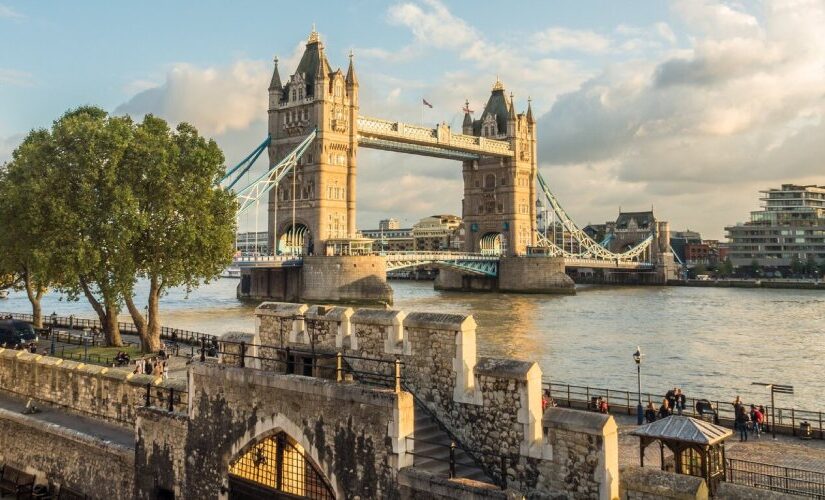Traveling has always been a cherished escape from the monotony of daily life, offering a chance to explore new cultures and gather fresh perspectives. However, the reality of financial constraints, especially in the face of accumulated debt, can make the dream of traveling seem unattainable. Then knowing how to travel on a budget is useful.
With rising living costs and financial responsibilities, many find themselves prioritizing debt repayment over leisure and travel. Yet, it’s essential to recognize that traveling isn’t just a luxury – it’s a way to regain the energy and strength needed to tackle life’s challenges, including financial ones.
So in this article we will take a look at the paradox of needing to travel for mental and emotional well-being while being financially constrained, primarily due to debt. And at the end of the article we will look at some of our best strategies for how to travel on a budget.
First, understand your financial situation
Re-crediting, or debt consolidation, is a financial strategy that involves combining multiple debts into a single loan. This approach often results in a lower overall interest rate and simplified monthly payments.
For individuals burdened with multiple debts, re-crediting can be a real big lifesaver. It simplifies the repayment process, potentially lowers interest rates, and can free up some financial resources. By managing debts more effectively, you might find some room in your budget for travel, which is vital for maintaining overall well-being.
And while re-crediting is a useful tool in debt management, it’s not a one-size-fits-all solution. It requires careful consideration of your financial situation and long-term goals. Consultation with a financial advisor is recommended before making any decisions.
Learn how to maximize the benefits of travel while minimizing costs
The goal is twofold – to rejuvenate yourself mentally and emotionally while keeping your financial health in check.
1. Plan early and do your research
The foundation of cost-effective travel lies in meticulous planning and research. By starting your preparations well in advance, you can take advantage of early bird discounts, particularly for flights and accommodations. Researching your destination thoroughly allows you to uncover hidden gems that are both affordable and less touristy.
So utilize travel comparison websites to find the best deals and consider flexible dates for travel to capitalize on the cheapest fares. This strategy not only saves money but also prepares you for a well-organized trip, reducing the likelihood of unexpected expenses.
2. Invest in travel insurance
While it may seem counterintuitive to spend money on travel insurance when trying to save, this step can actually protect you from significant unforeseen expenses. Travel insurance can cover a range of potential issues, from medical emergencies to trip cancellations or lost luggage.
The key is to find a policy that matches your needs without overpaying for unnecessary coverage. Shop around and read the fine print to understand what’s included. This investment can give you peace of mind and save you from potential financial disasters while traveling.
3. Embrace local experiences
One of the most enriching and cost-effective ways to travel is to immerse yourself in local experiences. Instead of expensive tourist traps, seek out activities and attractions that locals enjoy. For example, visit local markets, eat at family-run restaurants, and participate in community events.
These experiences not only offer a more authentic glimpse into the culture but also tend to be significantly cheaper than mainstream tourist activities. Engaging with locals can also provide insights into other cost-saving opportunities and hidden spots worth exploring.
4. Utilize travel points and rewards programs
If you travel frequently or use certain services like credit cards, don’t overlook the benefits of loyalty programs. Accumulating travel points and rewards can lead to significant savings on flights, hotels, and even car rentals.
So be strategic in using credit cards that offer travel rewards, and join airline and hotel loyalty programs. Keep track of your points and understand the best ways to redeem them. Sometimes, combining points with special deals can result in almost free travel experiences.
5. Opt for alternative accommodations
Traditional hotels are not the only option for travelers. Alternative accommodations like hostels, guesthouses, vacation rentals, or even home exchanges can offer not only lower prices but also unique experiences. Platforms like Airbnb or Couchsurfing connect travelers with locals offering affordable stays.
These options often provide access to kitchen facilities, allowing you to save further by preparing your own meals. Additionally, staying in a local neighborhood rather than a tourist-centric area can provide a more authentic experience at a lower cost.
6. Use public transportation and walk
Explore your destination like a local by using public transportation. Buses, trains, and subways are usually much cheaper than taxis or car rentals and provide an authentic glimpse into local life. In cities with good public transit systems, consider purchasing a day or week pass for unlimited rides.
Additionally, walking is not only free but also a great way to discover hidden gems and get exercise. Plan your day so that you can explore different neighborhoods on foot, experiencing the destination more intimately.
7. Cook your own meals
Food can be a significant part of a travel budget, but you can save considerably by cooking some of your meals. Choose accommodations with kitchen facilities and shop at local markets or grocery stores.
Preparing your own meals allows you to save money, control your dietary preferences, and even learn to cook local dishes. Even if cooking every meal isn’t feasible, substituting a few restaurant meals with home-cooked ones can make a noticeable difference in your budget.
8. Seek free attractions and activities
Many destinations offer a wealth of free or low-cost attractions and activities. From museums with free admission days to public parks, historical sites, and free walking tours, there’s often no need to spend a lot on entertainment. Research free things to do in your destination before you go, and plan your itinerary around these activities.
This approach not only saves money but often leads to more unique and memorable experiences than the standard tourist fare.
Check out our recent articles here:
Remember that by employing these strategies, you can significantly reduce the costs associated with travel, making it possible to explore new destinations even on a limited budget. Remember, the value of travel is measured in experiences and memories, not in how much you spend.

Sveicināti, čeļotāji!
Mani sauc Toms, esmu liels ceļotāju piekritējs. Katrā atvaļinājumā ceņšos saplānot kādu ceļojumu, un apceļot vietas, ko vēl neesmu redzējis. Ja, arī esi liels ceļotājs, seko līdzi blogam!

